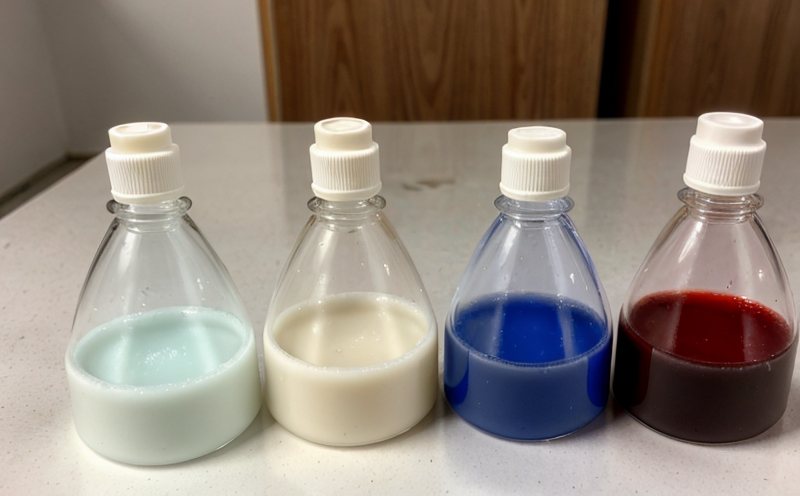Food Contact Material Monomer Testing
The integrity and safety of food contact materials (FCMs) are paramount in ensuring consumer health and safety. Food contact material monomer testing is a critical aspect that guarantees the compatibility of FCMs with food products during storage, handling, and consumption. This service involves rigorous analysis to determine the presence and levels of monomers—small molecules that can potentially leach into food from packaging or containers.
The primary goal of this testing is to prevent the transfer of harmful substances from the material to the food, thereby avoiding potential health risks such as allergic reactions, cancer, and other serious conditions. Compliance with international standards like ISO 10391:2016, ASTM F884-17, and EN 1050 is essential for manufacturers and suppliers of FCMs.
Testing includes a variety of methods to examine different aspects of the material's composition. For example, GC/MS (Gas Chromatography-Mass Spectrometry) and HPLC (High-Performance Liquid Chromatography) are used to detect trace amounts of monomers. These tests ensure that any monomer present does not exceed safe limits set by regulatory bodies.
Specimen preparation is a crucial step in the testing process. It involves selecting representative samples from batches of FCMs, which are then cleaned and processed according to specific protocols. The precision of this step ensures reliable results that accurately reflect the material's properties.
| Method | Target Substance | Regulatory Compliance |
|---|---|---|
| GC/MS | Polyvinyl Chloride (PVC) | ISO 10391:2016 |
| HPLC | Bisphenol A (BPA) | ASTM F884-17 |
| ICP-MS | Mono-nitrobenzene | EN 1050 |
The instrumentation used in these tests is highly sensitive and accurate, capable of detecting minute quantities of monomers. The results are then compiled into comprehensive reports that outline the presence or absence of each targeted substance.
In summary, food contact material monomer testing plays a vital role in maintaining consumer safety and regulatory compliance. By using advanced analytical techniques and adhering to international standards, this service ensures that FCMs do not pose any risks when used in food packaging applications.
Why It Matters
The importance of monomer testing cannot be overstated in the context of food safety. Even small amounts of certain monomers can have significant health implications, making it essential to conduct thorough analysis before materials are placed on the market or used in food packaging.
- Health Risks: Leaching of monomers from FCMs into food can lead to various health issues, including allergic reactions and cancer.
- Regulatory Compliance: Adherence to international standards is mandatory for manufacturers to ensure their products meet safety and quality requirements.
- Customer Trust: Safe and reliable FCMs build trust among consumers, which is crucial for brand reputation and market success.
The consequences of not conducting proper monomer testing can be severe. Non-compliance with regulations can result in product recalls, legal penalties, and damage to the company's reputation. Therefore, investing in this service is a prudent measure that aligns with consumer expectations and regulatory requirements.
Industry Applications
Food contact material monomer testing finds applications across various industries where FCMs are used for packaging or direct food contact. Some key sectors include:
- Packaging manufacturers
- Plastic producers
- Pharmaceutical companies using FCMs in drug delivery systems
- Cosmetics firms utilizing FCMs as containers
| Sector | Application Specificity | Regulatory Focus |
|---|---|---|
| Packaging Manufacturers | Ensure safety of packaging materials in direct contact with food. | ASTM F884-17, ISO 10391:2016 |
| Plastic Producers | Identify and mitigate risks associated with plastic additives. | EN 1050 |
| Pharmaceutical Companies | Guarantee compatibility of FCMs in drug delivery systems. | ISO 10391:2016, ASTM F884-17 |
| Cosmetics Firms | Avoid leaching into cosmetic products that come into direct contact with skin. | EN 1050 |
The testing process is tailored to each sector, ensuring the safety and compliance of materials used in their specific applications. This service helps prevent any adverse effects on consumer health and ensures that products meet stringent regulatory standards.
Eurolab Advantages
At Eurolab, we offer comprehensive food contact material monomer testing services designed to meet the highest standards of quality and reliability. Our team of experts uses state-of-the-art equipment and follows international guidelines to ensure accurate and consistent results.
- Expertise: Our specialists are highly experienced in performing this type of analysis, providing deep insights into the data.
- Technology: We leverage advanced analytical techniques like GC/MS, HPLC, and ICP-MS to deliver precise results.
- Compliance: All our tests are conducted according to international standards such as ISO 10391:2016, ASTM F884-17, and EN 1050.
- Speed: We offer rapid turnaround times without compromising on the quality of analysis.
- Confidentiality: Client data is kept strictly confidential, ensuring that all information remains secure.
By partnering with Eurolab, clients can benefit from our robust testing capabilities and unwavering commitment to excellence. Our services are tailored to meet the specific needs of each client, providing peace of mind regarding product safety and regulatory compliance.





